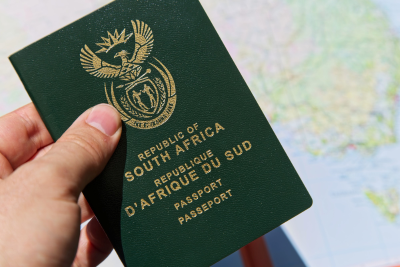A Guide to Chinese Visa (2023): Everything You Should Know
September 02, 2023
Foreigners looking to enter China can do so in many ways since the border restrictions have been lifted post-Covid. China restricted access to its land for around three years and recommenced issuing all China visas as of March 2023.
Here is a look at the available Chinese visas.
I-Do I Need A Visa To Go To China?
II- Chinese Visa Types- 1.Chinese L Visa (Chinese Tourist Visa)
2. Chinese Z Visa (Chinese Work Visa)
3 . Chinese M Visa (Chinese Business Visa)
4. Chinese G Visa (Chinese Transit visa)
5. Chinese X1/X2 Visa (Chinese Student Visa)
6. Chinese Spousal Visa
7. Other Chinese Visas (Chinese C, D, F, J, and R Visa)
- 1. China Visa Requirements
2. Where To Apply for a Chinese Visa
3. How much is the Chinese visa application fee?
4. How long does it take to get a Chinese visa?
5. Can I Use My Chinese Visa to Enter Hong Kong?
- 1. Can I Work in China with A Student Visa?
2. How long is a Chinese visa valid?
3. Can a Chinese Visa be Extended or Renewed?
4. What Happens If You Overstay Your Visa in China?
I-Do I Need A Visa To Go To China?
1. China Visa Exemption
First, there is a mutual visa exemption with over 150 countries. Unfortunately for the citizens of the majority of these countries, visa-free arrangements apply only to diplomatic or official passports.
However, citizens from the countries listed below are able to travel to China without a visa for up to 30 days for tourism, travel, business, and visiting family or friends.
These countries are:
| Armenia | The Maldives |
| The Bahamas | Mauritius |
| Barbados | San Marino |
| Belarus | Serbia |
| Bosnia and Herzegovina | Seychelles |
| Dominica | Suriname |
| Fiji | The United Arab Emirates |
| Grenada |
If you want to stay longer than 30 days, you must apply for long-term visas like everybody else.
As of July 23rd, 2023, Singaporeans are allowed 15-day visa-free entry, which is a resumption of a pre-covid regulation.
2. China Visa-Free Countries
China also has short-term visa-free entry available for visitors. These entries are for 24/72/144 hours but have some limitations.
The most important things to remember are:
• Must show proof of your next destination,
• Must leave from the same port you entered China,
• For the 72 and 144-hour entries, there is a designated area of activity,
• For the 24-hour entry, you cannot leave the city you entered via.
The 144-hour visa-free exemption is available for citizens from 52 nations.
The 52 nations are:
24 countries in the Europe Schengen area: Austria, Belgium, Czech Republic, Denmark, Estonia, Finland, France, Germany, Greece, Hungary, Iceland, Italy, Latvia, Lithuania, Luxembourg, Malta, Netherlands, Poland, Portugal, Slovakia, Slovenia, Spain, Sweden, and Switzerland.
15 other countries in Europe: Russia, United Kingdom, Ireland, Cyprus, Bulgaria, Romania, Ukraine, Serbia, Croatia, Bosnia and Herzegovina, Montenegro, Macedonia, Albania, Monaco, and Belarus.
Six countries in the Americas: The United States, Canada, Brazil, Mexico, Argentina, and Chile.
Two countries in Oceania: Australia and New Zealand.
Five countries in Asia: South Korea, Japan, Brunei, the United Arab Emirates, and Qatar.
The 144-hour entry is available at 27 entry ports located in 20 cities.
Visa-free 72-hour entry is available at a further three ports located in three other cities.
All international travelers ([except those exempted due to special circumstances](https://www.nia.gov.cn/n741440/n741577/c759334/content.html)) that are transiting through China are permitted to apply for a 24-hour visa-free entry permit upon arrival.
For a complete list of regulations, check out [China Briefing](https://www.china-briefing.com/news/china-visa-free-travel-policies-2023-complete-guide/#:~:text=After%20almost%20three%20years%2C%20China,types%20of%20visas%20to%20foreigners.).
II- Chinese Visa Types:
Chinese visas are divided into four categories; Diplomatic Visa; Courtesy Visa; Service Visa; and Ordinary Visa.
The latter, the most common type of Chinese visa, can be further classified into multiple subcategories. The most popular ones are:
1.Chinese L Visa (Chinese Tourist Visa)
Issued to tourists and sightseers. The L-visa can be for 3, 6, or 12 months. These can be single, double, or multiple-entry visas. With a multiple-entry visa, a person can stay up to 60 days per entry.Also, a 10-year multiple-entry tourist visa is available for US, UK, Canada and Argentina passport holders.
2. Chinese Z Visa (Chinese Work Visa)
Issued to those who have obtained employment in China. After entering China, you must obtain your residence permit within 30 days. The company you work for can help you do this.The Z visa usually lasts for around one or two years, depending on the length of your employment contract.
3 . Chinese M Visa (Chinese Business Visa)
A business visa is issued to those who intend to visit China for commercial and trade activities. The M visa is for single-entry, double-entry, or multiple-entry depending on the proof you provide for your visit.
4. Chinese G Visa (Chinese Transit visa)
Chinese G visa is a transit visa for people who intend to stay in the country for longer than the 144-hour visa-free entry mentioned previously. The fees, length of visas, and application are identical to the L visa.
5. Chinese X1/X2 Visa (Chinese Student Visa)
Issued to those who have been admitted by a Chinese college. Student visas are divided into two categories: X1 and X2.
Foreign students who will study in China for more than six months receive an X1 visa. X2 is issued to those who come to China with the same purpose but for less than six months. The X2 visa is a single-entry visa only, but the X1 visa can be multiple entries with a validity of up to 5 years.
6. Chinese Spousal Visa
There are two main types of China spousal visas: Q and S. These are broken down further into Q1 or Q2 and S1 or S2.
The easy part to remember is that the 1 and 2 in both cases are identical. To receive a Q1 or S1 visa, the length of stay exceeds 180 days. Anyone staying fewer than 180 days receives a Q2 or S2 visa.
The difference between Q and S visas is not that difficult to understand, either.
Q visas are given to family members of a Chinese citizen or a foreigner with permanent residence in China.
The S visa is issued to those who intend to go to China to visit foreigners working or studying in China for a long period, to whom they are spouses, parents, sons or daughters under the age of 18 or parents-in-law, or to those who intend to go to China for other private affairs.
The S2 visa is available to all family members, whereas the S1 is slightly more restricted."Family members" refers to spouses, parents, sons, daughters, spouses of sons or daughters, brothers, sisters, grandparents, grandsons, granddaughters, and parents-in-law.
7. Other Chinese Visas (Chinese C, D, F, J, and R Visa)
For an in-depth list of all available visas, check out China Discovery. But in simple terms:
C Visa: Foreign crew members of international transportation.
D Visa: Issued to those who intend to reside in China permanently.
F Visa: Issued to those who visit China for research, lectures, scientific, cultural exchange, study tours, visits, and relevant activities.
J Visa: J1 is for foreign journalists who will stay for over 180 days. J2 is for less than 180 days.
R Visa: High-level foreign talent.

III- How To Apply for A Chinese Visa
1. China Visa Requirements
Below is a list of documents you will need no matter the visa type you are applying for.
● Passport
Original passport with at least TWO blank pages and six months of validity.
One photocopy of the data page. (Make a separate copy if they are not on one page.)
● Visa Application Form
If the China Online Visa Application system (visit www.visaforchina.org and https://cova.cs.mfa.gov.cn to check first) is available in your nation, you’re required to fill in the electronic form on the official website, then save and submit the form online. You will also need to print it out, sign, and date the completed paper form.
If online submission doesn't exist in your country, you need to download the newest China Visa Application Form (version 2013) from the official website of the Chinese Embassy or Consulate.
Fill in the electronic form in PDF/DOC format, and print it out.
Be clear about the purpose of your visit, so you can apply for and receive the correct visa.
Here’s a guide for how to fill in the form: https://www.chinadiscovery.com/chinese-visa/apply-for-china-visa-online.html
● Photo
Two photographs taken in the last six months. Photo size of 33mm×48mm, against a white or light solid background, hatless, frontal view presenting full face.
● Proof of Legal Stay or Residence (apply to outlander applicants)
If you will not apply for a Chinese Visa in the state/region of your citizenship (nationality), you must provide the original and photocopy of the valid certificate or visa. This photocopy will show your legal stay, residence, work, and study in the residing country.
● Previous Chinese Passport or Chinese Visa(apply to former Chinese citizens who have later joined to foreign nationality)
If it’s the first time you are applying for a Chinese Visa, you must submit the original passport and a copy of the data page.
If you once obtained a Chinese visa, and are now applying for a Chinese visa with a new passport, you should provide a photocopy of the previous passport’s data page and a copy of the old Chinese visa. (Official certificate of name change is required, if the name on the current passport is not the same as on the old one.)
Along with the documents listed above, a whole host of supplementary documents are required depending on the type of visa you are applying for.
For example, if you are applying for a tourist visa (L), you will need a full itinerary of the places you are staying with bookings, flights in and out of China, and an invitation or something similar.
In contrast, spouse and work visas require numerous additional materials, which can be found on the China Discovery website (https://www.chinadiscovery.com/chinese-visa/requirements.html)

2. Where To Apply for a Chinese Visa
The initial application can be completed online in some countries, and then an appointment is requested, but the visa requires an in-person submission of documents, an interview, etc.
If you reside in and plan to apply in one of the 46 countries/regions (including Canada, Australia, UK, Malaysia, Singapore, France...), you are required to submit China Visa Application to the CVASC (China Visa Application Service Center). Visit http://www.visaforchina.org/ to check whether or not you should submit via the visa service centre.
While in the US, for example, you must submit directly to the Chinese Embassy or Consulates by using the COVA (China Visa Online Application) and AVAS (Appointment for Visa Application Submission) systems.
By going through https://cova.cs.mfa.gov.cn, you can check to see if it is possible to complete the visa application form online.
Whatever the method, you are likely to take a trip to the embassy or visa centre.
3. How much is the Chinese visa application fee?
It is not going to shock you to read that the application fee depends on the visa type, length, number of entries, and applicant's nationality.
To get this information, you must check the official website within your country.

4. How long does it take to get a Chinese visa? (China visa processing time)
As you can imagine, the processing time for a Chinese visa depends on a few factors.
For example, if you are from a lower GDP nation, applying from a 3rd party nation, or looking to enter more restricted areas like Tibet or Xinjiang, then you are going to wait longer for approval.
The consensus is that it is usually 4-5 business days for simple applications that have no complex requirements or complications. Work and spousal visas could take as long as eight weeks in some countries, according to VisaHQ.
5. Can I Use My Chinese Visa to Enter Hong Kong?
NO.
Hong Kong is part of China as a 'special administrative region' (SAR) and has separate entry regulations. The same goes for Macau and Taiwan.
IV- China Visa Policy
1. Can I Work in China with A Student Visa?
Foreign students are allowed to work a maximum of eight hours a week, and no more than 40 hours a month. Permission from the university you are attending is required. Students can double the quota during the summer and winter holidays.2. How long is a Chinese visa valid?
Most common Chinese visas last for 30, 90, or 180 days, or 1, 2, 5, or 10 years depending on the type of visa. These visas may be single, double, or multiple entries. Make sure to clarify how long you can stay on each entry.
Finally, the visa will be void if you do not enter China in time.
3. Can a Chinese Visa be Extended or Renewed?
Absolutely!
The extension has to be applied for seven days before the end of your existing visa, but we strongly suggest applying even earlier. You need to go to the Public Security Bureau (PSB) where you are based. The PSB can be a very daunting place, so be prepared and take a friend who speaks fluent Mandarin.
Visa holders can extend their visa once or twice, depending on the length of the original visa. Work visas (Z) can be extended as many times as needed, as long as the applicant has a valid job contract.
For more information regarding required documents and the length of extensions available, check out the government website: https://en.nia.gov.cn/n167/n247/n10178/c68185/content.html
4. What Happens If You Overstay Your Visa in China?
Overstaying your visa can have serious consequences.
A fine of CNY500 is applied for each day past the visa end date until it reaches CNY10,000. If you overstay for an extended period, you are risking detainment for between 5-15 days before being sent home.
In the case of such an event, you are likely to have a “black mark” on your immigration profile which will impact future visas you apply for.
Conclusion
In the ever-changing world of visas, China’s visa regulations will likely change umpteen times, but for now, this guide and the accompanying links will be of great use to wannabe visitors to the Middle Kingdom.Good luck with your quest!
About the Author
Mehmet has been a struggler, learner, and maybe one day a solid grasper of the Chinese language and country thanks to his decade plus spent in the Middle Kingdom.
